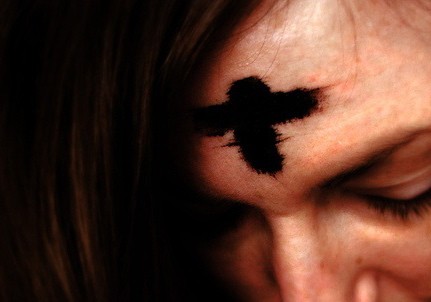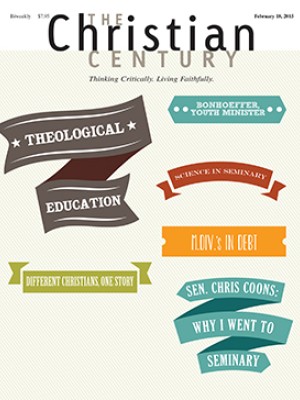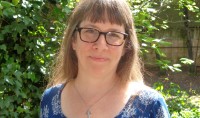Marked as human
"Remember you are dust, and to dust you shall return.” These ancient words have been passed down from Christian to Christian over countless Ash Wednesdays. They have their source in God’s admonition to Adam and Eve on their way out of paradise. When we repeat them we remember that we continue that journey into the vast, fallen world. With our foreheads smeared with ashes, we remember our failings and our mortality.
It is a day of individual reflection. We receive the ashes together but also one at a time, each body individually marked. “I know my transgressions,” we sing with the psalmist, “and my sin is ever before me.” We sit in silence together and recall what we have done and left undone. We remember we are dust and that we will return to dust. And we ponder the mystery of the incarnation that gathers up and blesses the brevity and fragility of our life.
Read our latest issue or browse back issues.
Ash Wednesday is also a day to consider our shared future as members one of another. It is not only our individual lives that are fragile. As the changes in our climate accelerate and the divisions in our societies deepen, Ash Wednesday is a day to remember the fragility of the life of the earth itself and the human communities it sustains.
My mother, sister, and I love to share our favorite novels with each other and then talk about them when we get together. Over the last several years we’ve noticed that many of the books that mean the most to us are concerned with the vulnerability of the world’s future.
In the Maddaddam trilogy, Margaret Atwood imagines what might be the place of humans and their religions after a human-made plague winnows the earth’s population. In The Bone Clocks, David Mitchell conjures the struggle of human communities to survive the effects of climate change as they become isolated from each other, the Internet begins to flicker out, and roving gangs use drones to identify plunder. The power of these novels lies in their ability to imagine a future that seems plausible, if not inevitable, and which is already a reality for many people on this planet. These stories give us a way to think about our most unthinkable fears.
In my most recent favorite, Station Eleven, Emily St. John Mandel imagines the landscape of the upper Midwest after a virulent strain of swine flu wipes out most of the earth’s population. If you are looking for a book to meditate on this Lent, I recommend this one. Station Eleven tells interlocking stories about characters seeking ways to support shared human life when the world they know has come to a sudden end. One group of survivors forms a company of actors and musicians who travel from settlement to settlement to perform music and the plays of Shakespeare. As they travel the dangerous roads between the makeshift towns that have grown up around Lake Michigan, they encounter violence and cruelty but also decency and compassion. Wherever they stop, they perform a play that reminds themselves and their audiences of the countless human possibilities that make life worth living.
Station Eleven reveals the irreplaceable beauty of much that we take for granted. Mandel’s characters are constantly arrested by small things: the satisfactions of friendship and work, the ecstasy of feeling fully awake and alive, the way a simple decent act can transform those who witness it. Climate activist and divinity student Tim DeChristopher says that our most urgent work now is to find ways of holding onto our humanity as we move through the changes that will be and already have been caused by climate change. Mandel’s novel is a meditation on the gestures and choices that help us remain human when so much of what once supported human life has fallen away.
The smeared crosses on our foreheads are an incarnational work of art that helps us confront our greatest fears. When we are marked with ashes we are marked not only with a sign of our mortality but also with a sign of the struggle to remain human under the greatest possible pressure. We follow Jesus into the desert of Lent to learn about the most mysterious possibilities that our humanity holds: healing, resistance, love, and forgiveness. Again and again, year after year, he teaches us that human life holds more possibilities than we’ve ever imagined.
Ash Wednesday is an opportunity both to acknowledge our individual mortality and to recognize the fragility of our planet and the communities that make it their home. As we remember our sins and ask to be forgiven, let’s also remember what we love and ask to love it more. May the ashy crosses on our foreheads be a sign of commitment to each other and to the life of this fragile world.







